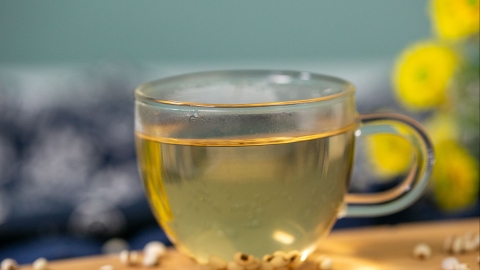What kind of tea is better for people with a weak stomach?
Generally, people with poor stomach health can benefit from drinking teas such as clove tea, ginger tea, licorice tea, buckwheat tea, and Si Junzi tea. Detailed explanations are as follows:

1. Clove Tea
Components in clove tea, such as eugenol and clove oil, can stimulate gastric juice secretion, promote gastrointestinal motility, and alleviate symptoms such as stomach bloating and constipation, making it suitable for people with stomach diseases. Moreover, clove tea has heat-clearing and detoxifying properties that can help reduce gastric inflammation.
2. Ginger Tea
Ginger tea has warming properties that can dispel cold and improve blood circulation, warming the stomach and relieving symptoms such as cold sensitivity and stomach pain. It is suitable for individuals with cold deficiency in the spleen and stomach. However, individuals with excessive stomach heat should avoid ginger tea.
3. Licorice Tea
Licorice tea helps relieve cough, expel phlegm, improve digestion, and stimulate gastric juice secretion, aiding digestion. At the same time, it can help protect the gastric mucosa, reducing damage caused by external factors.
4. Buckwheat Tea
Buckwheat tea is rich in dietary fiber, which helps the body eliminate waste and improve discomfort caused by indigestion, such as bloating, abdominal pain, and constipation. Additionally, buckwheat tea enhances vascular elasticity and may help lower blood lipids and blood pressure.
5. Si Junzi Tea
Si Junzi tea is primarily composed of ginseng, white atractylodes, poria, and prepared licorice. It has the effect of invigorating qi and strengthening the spleen, promoting gastrointestinal digestion, and reducing the burden on the gastrointestinal tract, making it suitable for individuals with chronic stomach diseases.
It should be noted that although these teas offer some benefits for the stomach, they cannot replace medical treatment. Therefore, it is recommended to identify the specific cause of stomach discomfort and avoid self-medication before the cause is clearly diagnosed.







